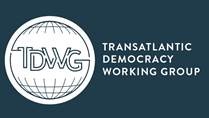The Biden administration must ensure that its forthcoming Summit for Democracy does not turn out to be “yet another good idea that is executed poorly.” Another platform for meaningless democracy rhetoric would be a step backwards. At the other end of the spectrum, a rigid “Alliance of Democracies” could counterproductively exclude partial or flawed democracies, of which there are many, says analyst Ben Scott.
The United States should more clearly distinguish democracy promotion from democracy protection. Democracy protection requires more than just domestic reform or demonstrating that, as Biden is fond of saying, “that democracy can still deliver”. It requires increased cooperation between existing democracies, he writes for the Lowy Institute’s Interpreter:
With which democracies should the US cooperate? Smaller groups that have more in common can do more. That logic has driven a wider trend towards more minilateralism, including the evolution of groups such as the Quadrilateral Security Dialogue (United States, India, Japan, Australia) and AUKUS (Australia, United Kingdom, United States). It underlies the proposed D-10 Initiative. Exclusive democratic “clubs” can have a wider positive effect: Turkey undertook democratic reforms when it remained hopeful of entering the European Union.
 AUKUS anchors Australia firmly into an global pact of defense democracies and reminds China that Australia has powerful friends, Julian Lindley-French writes for the Clingendael Institute:
AUKUS anchors Australia firmly into an global pact of defense democracies and reminds China that Australia has powerful friends, Julian Lindley-French writes for the Clingendael Institute:
AUKUS and NATO will together be vital if the US is to ease the growing overstretch to which its armed forces are increasingly subject because of the rise of an aggressive, militaristic China and its ‘mini-me’, Russia. AUKUS is thus a precedent – and not just for Australia, the UK and US. Over time, other democratic powers, such as Japan and South Korea, are bound to follow suit; not to mention in time Canada and New Zealand, and possibly even India.
But there are costs to exclusivity [in the Summit for Democracy]. Implicitly badging others states as undemocratic can encourage democratic backsliding, as happened after Turkey’s EU accession bid was botched, adds Scott:
The best way to offset the cost of minilateralism – exclusion – is through more minilateralism. To balance the competing imperatives of inclusivity and effectiveness, Washington should aim to produce multiple new democratic groupings. These groups could be organised according to the issues on which they are prepared to cooperate. Some may only be prepared to do so on one or two issues. States prepared to cooperate on the widest array of issues could form a core group.
 The Summit itself should be treated as the start of an application process rather than constitutive of a new group, Scott asserts. The high number of partial or flawed democracies in the world – all of which base their legitimacy – at least in part – on their democratic credentials creates an opportunity that can be leveraged. The event should be open to any democracy willing to admit that it has problems, and to seek help. RTWT
The Summit itself should be treated as the start of an application process rather than constitutive of a new group, Scott asserts. The high number of partial or flawed democracies in the world – all of which base their legitimacy – at least in part – on their democratic credentials creates an opportunity that can be leveraged. The event should be open to any democracy willing to admit that it has problems, and to seek help. RTWT
Transatlanticism enhances democracy promotion and collective security in Europe and Asia, augmenting an international order shaped by deliberation and cooperation, argues Catholic University professor Michael C. Kimmage. Hence the importance of ……
“Recalibrating the Transatlantic Partnership”
Speakers:
- Constanze Stelzenmüller, the Fritz Stern Chair on Germany and trans-Atlantic Relations in the Center on the United States and Europe at Brookings Institution
- Ambassador Thomas A. Shannon, Jr., a senior fellow with the Future of Diplomacy Project and a senior international policy advisor at Arnold & Porter.
![]() Moderated by Richard Kraemer, president of the U.S.-Europe Alliance and formerly a senior program officer at the National Endowment for Democracy. Organized by American Purpose, in partnership with the U.S.-Europe Alliance. November 3, 2021. 10:30 a.m. EDT. Register.
Moderated by Richard Kraemer, president of the U.S.-Europe Alliance and formerly a senior program officer at the National Endowment for Democracy. Organized by American Purpose, in partnership with the U.S.-Europe Alliance. November 3, 2021. 10:30 a.m. EDT. Register.
In recent years, antidemocratic trends have torn at the fabric of democracy in all corners of the globe, the National Endowment for Democracy adds. Watch the above video to join the Center for European Policy Analysis, in collaboration with the National Endowment for Democracy and the Taipei Economic and Cultural Representative Office, as leading voices from the US, Europe, and Asia come together to discuss concrete ways in which democracies from the three regions can work together.







